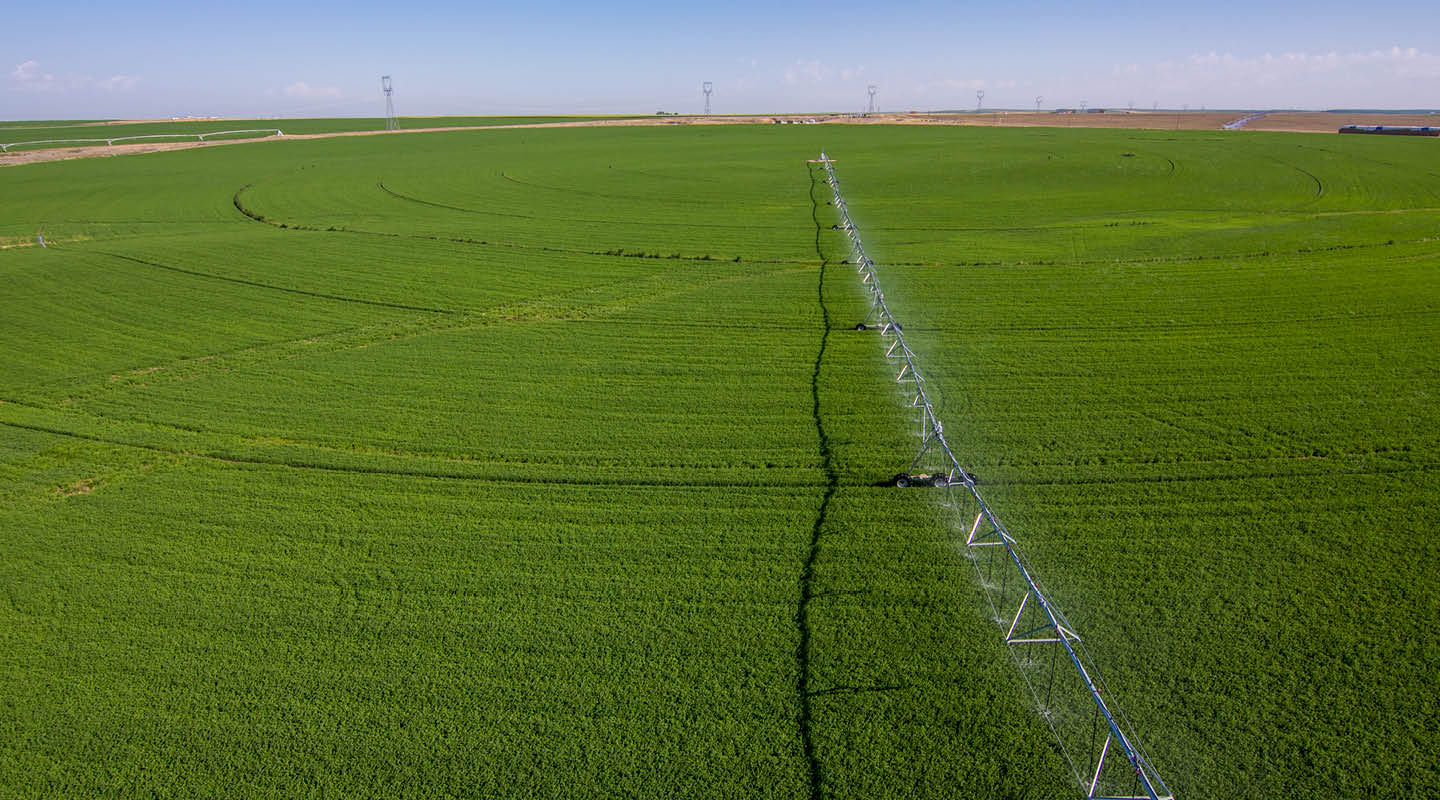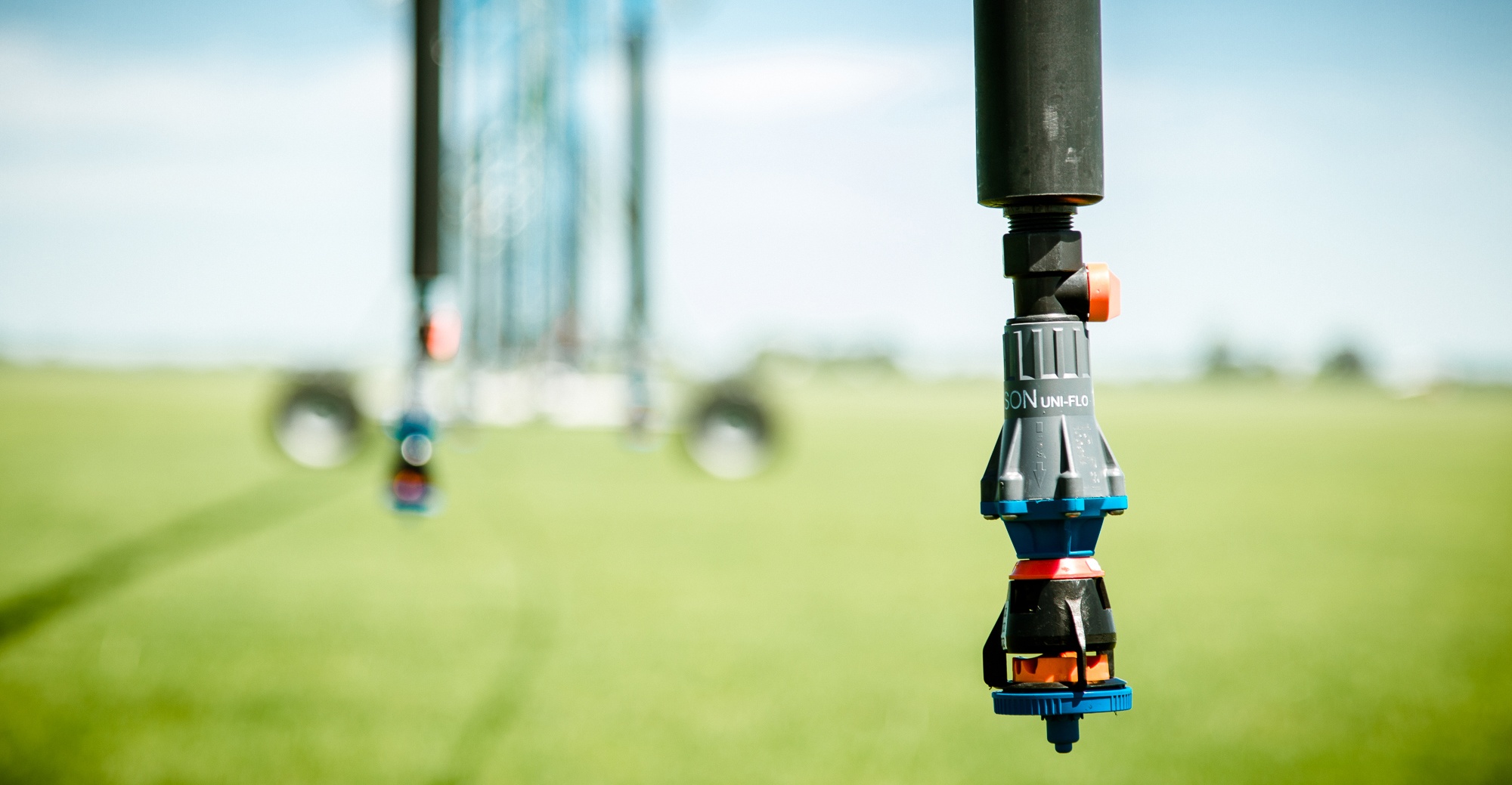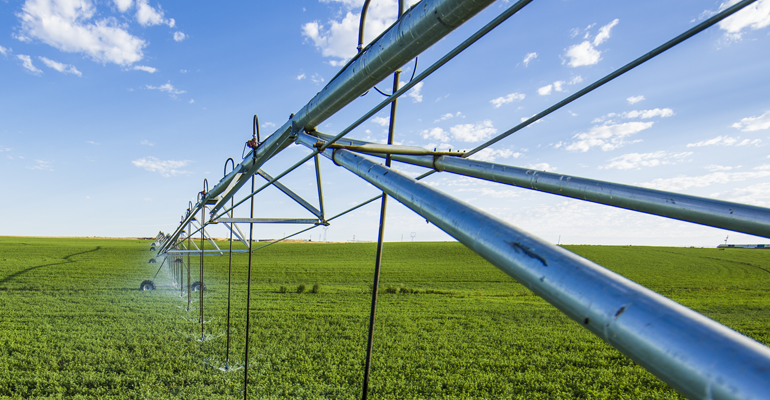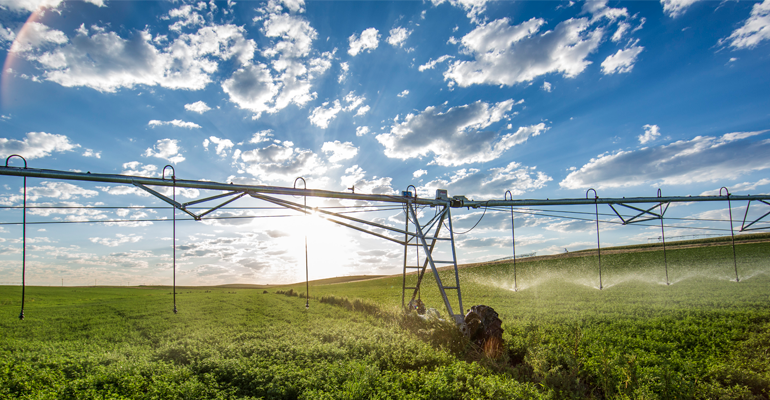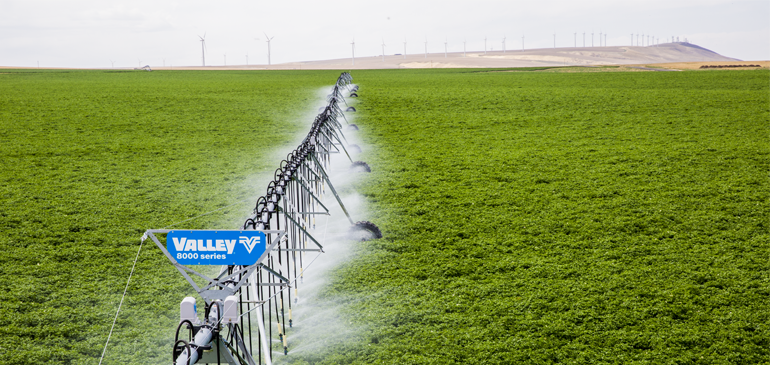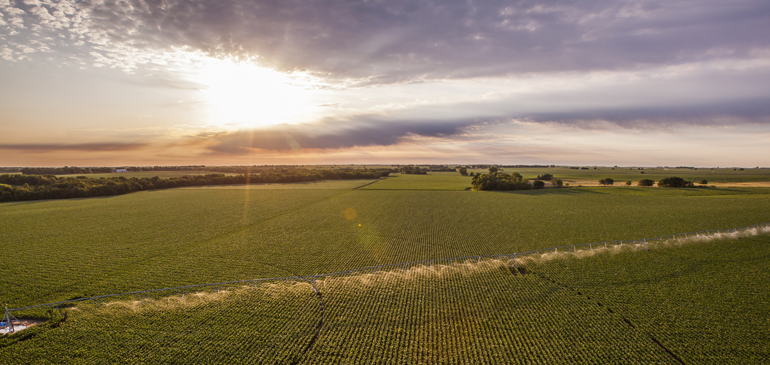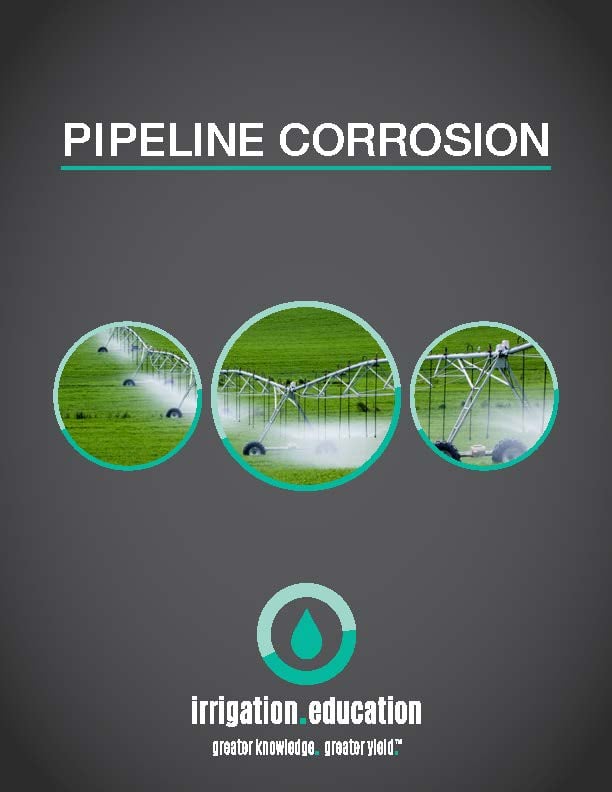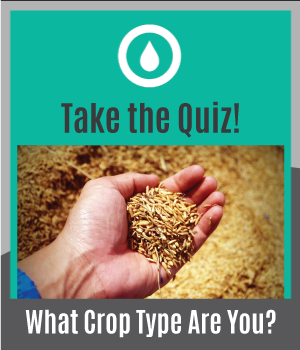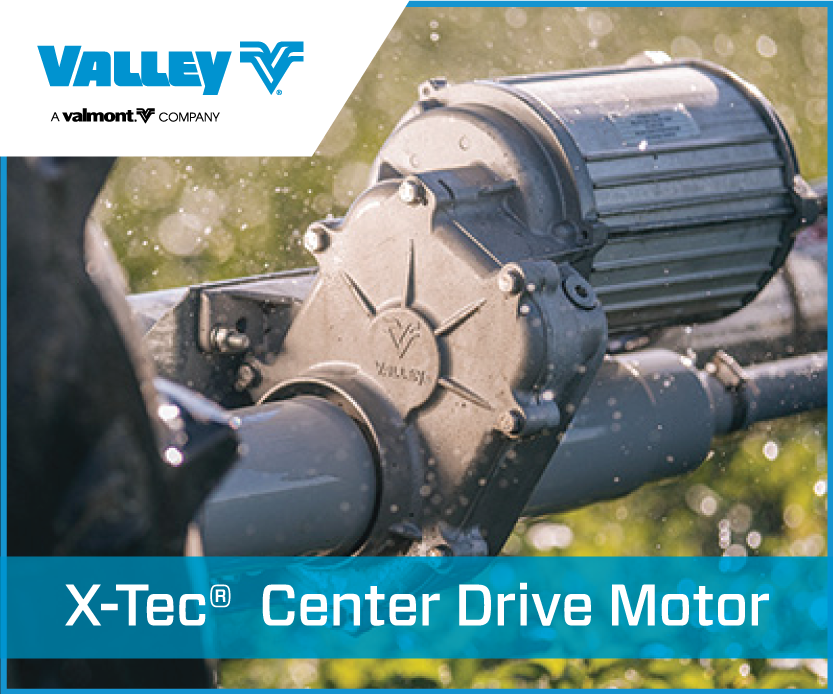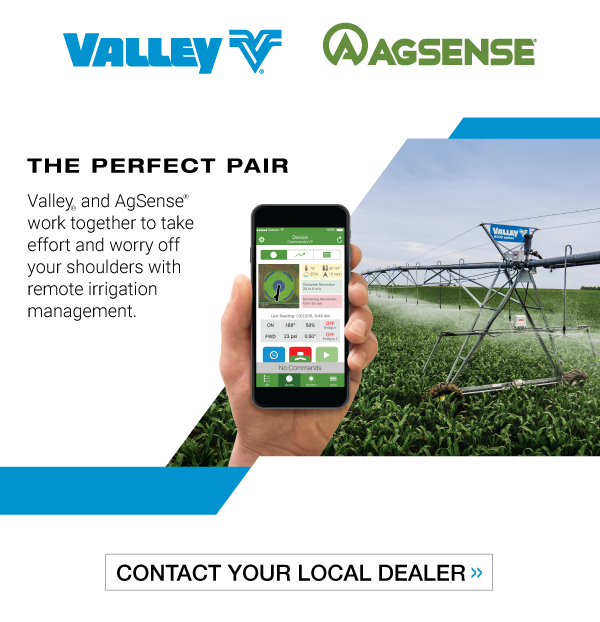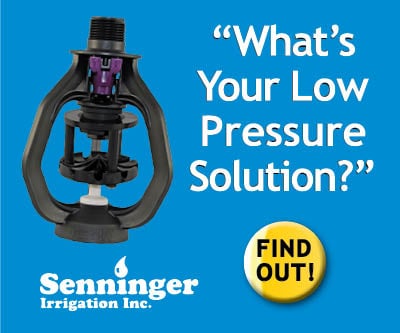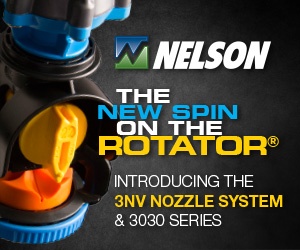When purchasing a center pivot, you likely have expectations for the lifespan of your equipment. Some center pivot pipelines are still dependable after 25 to 30 years of use, which would be ideal. However, some pipelines show leaks after only 7 to 10 years. So why do some farmers have better luck with center pivots than others?
Do Your Pivot Pipelines Last As Long As They Should?
Topics: Irrigation Solutions
5 Things Dealers Look at When Designing Your Sprinkler Package
There’s an infinite number of options when selecting a sprinkler package, so designing the right one for your field can be tricky. Depending on the type of soil, crop, or climate you’re operating with, your sprinkler package will need to be customized specifically to you.
Here are five things your dealer will typically look at when designing your sprinkler package.
Topics: Water Application
Are You Switching From Dryland Farming To Irrigation?
Starting the process of switching from dryland to irrigated farming can seem like a daunting task. There’s a lot to consider and factors that make initial investment costs not so cut and dry for every field. Patrick Scates, General Manager at Scates Valley Inc., a Valley® Irrigation dealership in Carmi, IL, talked us through who to talk to, what you should know, and what to expect when it comes to making an investment in center pivot irrigation.
Topics: Irrigation Solutions
Which Irrigation Type is Best For You?
Flood, drip, and mechanized are all common types of irrigation that are used in agriculture. If you’re looking to add irrigation to your dry land, it’s important to understand the benefits and drawbacks of each type in order to make the right decision for your fields. Before you decide on your method(s), you need to fully understand your field’s topography, soils, available water, and crop type(s). When you have a complete understanding of your field’s layout and composition, you’re ready to begin searching for the right method of irrigation.
Topics: Irrigation Solutions
Discover Center Pivot Components
Center pivots have evolved into complex machines that do more than just move in a circle and pump water onto the ground. But even with all the complexities, a modern-day pivot can be broken down into a handful of main components that make up the core framework. These major components include the pivot point, control panel, spans, drive units, and tower boxes.
Topics: Machine Structure
How a Center Pivot Irrigation Machine Works
Start With The Basics
Center pivot machines have been used in irrigation for decades. Center pivots, one of several types of mechanized irrigation machines, can lead to increased yields and less water wasted compared to other irrigation practices such as flood irrigation. But how exactly does a center pivot work? Let’s first discuss some components that will help explain the concept.
Topics: Machine Structure
Spending hours each day driving to the field, starting, stopping, and checking on your center pivot is now a thing of the past. With recent advances in irrigation technology, many growers are taking advantage of equipment that lets them manage their pivots remotely. With the right equipment, you can streamline your operation without missing out on the things that really matter in life – whether it’s dinner with the family or re-investing that time into other areas of your farm. Increasing the efficiency of your operation will not only give you more time, but can also lower labor costs.
Topics: Irrigation Technology
Choose the Right Sprinkler for Your Center Pivot
Precise water application is the key to maximizing yields and making the most of your resources. However, choosing the right irrigation sprinkler package for center pivots can be difficult with so many sprinkler options and several external factors to consider. From soil type, crop type, and climate, to individual field characteristics, it’s important to know how each factor may impact your sprinkler selection.
Topics: Water Application
Combatting Corrosion for Irrigation Pipelines
In the last 20 years, the U.S. has seen a considerable change in groundwater chemicals that drastically affect how water corrodes irrigation pipelines. Corrosive water damages irrigation pipelines and can decrease the life of a center pivot. There are different options available for combating corrosion. Some options are much better than others depending on the pH, chloride, sulfate, and other chemical levels in your water.
Topics: Irrigation Solutions
Deep wheel tracks can be a headache in the field. They lead to low crop clearance and can cause your center pivot or linear to get stuck mid-rotation. A common misconception is that a longer or heavier span automatically means deeper wheel tracks. This is simply not true.
Topics: Machine Structure

